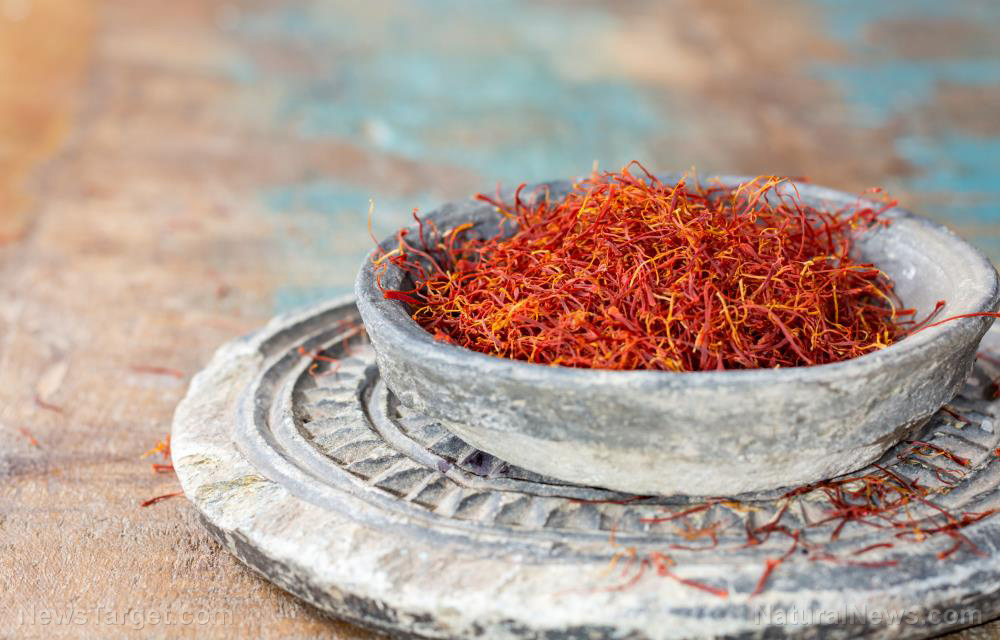The top 7 anti-inflammatory foods to consider adding to your diet
04/08/2019 / By Michelle Simmons

Inflammation is the normal response of your body’s immune system to the presence of pathogens, and helps fight disease, injury, or infection. However, when too much inflammation occurs in the body, it can become chronic and lead to many health problems, including autoimmune diseases and various types of cancer. Fortunately, you don’t need harmful medication to address inflammation – here are some foods that can help prevent it:
- Bell peppers: All bell peppers contain antioxidants. However, the bright-red ones are particularly loaded with antioxidants and low in starch. Like spicy peppers, sweet bell peppers also contain capsaicin, which is a chemical compound known to help with inflammation. This compound may also potentially reduce pain. You can eat bell peppers by chopping them first, then serving them with hummus. You can also drizzle a little bit of red wine vinegar, salt, and pepper on chopped bell peppers.
- Black tea: All tea comes from the plant called Camellia sinensis. However, black tea is more oxidized and has a stronger flavor than other types of tea. Like other teas, black tea contains antioxidants, which are known to protect cells from damage and prevent inflammation. Drinking black tea may also keep your arteries healthy, and was also associated with a significantly lower risk of ovarian cancer. You can drink black tea on its own, or you can add some milk and honey for some sweetness. You can also turn it into a refreshing drink by adding some lemon and pomegranate juice. (Related: What’s in a name? Learning the difference between black tea and green tea.)
- Buckwheat: Eating grains like buckwheat may help lower levels of C-reactive protein, which is a marker for inflammation. Additionally, buckwheat is gluten-free, so it is a safe option for people with celiac disease. Buckwheat is used to make soups or soba noodles. You can also buy the grain on its own and eat it as a substitute for rice.
- Mackerel: A Mediterranean staple, mackerel contains high amounts of healthy fats that help combat inflammation-related diseases, such as heart disease and Alzheimer’s disease. This fish also contains vitamins B12 and D. Vitamin D is not only important for bone health, but also for a well-functioning immune system. You can roast mackerel with herbs, olive oil, and lemon.
- Pears: Pears are considered anti-inflammatory foods because of their fiber content. Eating foods rich in fiber like pears can fight inflammation, especially in arthritis or diabetes. In addition, fiber-rich foods promote a healthy gut microbiome and promote satiety, which is especially beneficial to those who are trying to lose weight. Add pears to your diet by slicing them up and adding them to a salad with walnuts and soft cheese.
- Pomegranate seeds: Loaded with antioxidants, pomegranate seeds contain a compound called punicalagin, which targets inflammation in the brain. This, in turn, hampers the progression of cognitive decline. Pomegranate seeds can also lower both cholesterol and blood pressure levels. To eat them, cut the whole fruit in half, then spoon the seeds into a bowl. Eat them on their own or add them to salads.
- Spinach: Spinach is a popular superfood. This leafy green provides good amounts of vitamin E which protects the body from cytokines, a molecule that causes inflammation. You can add this to your diet by making a spinach salad. Combine the vegetable with a high-fat food like avocado to maximize its nutrients.
If there are anti-inflammatory foods, there are also foods that promote inflammation. Studies show that consuming sugary beverages, refined grains, desserts, and processed foods all cause inflammation. Eating too many foods high in omega-6 fatty acids, such as meat, dairy products, margarine, and vegetable oils, also increase the production of inflammatory chemicals in the body.
Sources include:
Submit a correction >>
Tagged Under:
anti-inflammatory, antioxidants, bell peppers, black tea, Buckwheat, food cures, food is medicine, groceries, inflammation, mackerel, natural cures, natural medicine, Pears, Pomegranate seeds, prevention, remedies, spinach
This article may contain statements that reflect the opinion of the author
RECENT NEWS & ARTICLES
GroceryCures.com is a fact-based public education website published by Grocery Cures Features, LLC.
All content copyright © 2018 by Grocery Cures Features, LLC.
Contact Us with Tips or Corrections
All trademarks, registered trademarks and servicemarks mentioned on this site are the property of their respective owners.





















